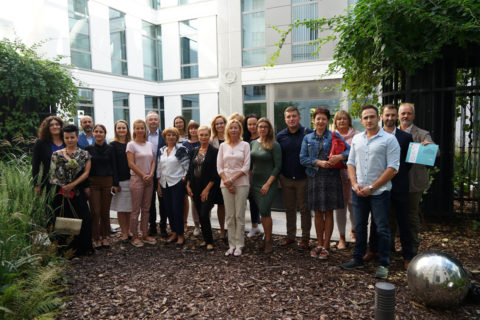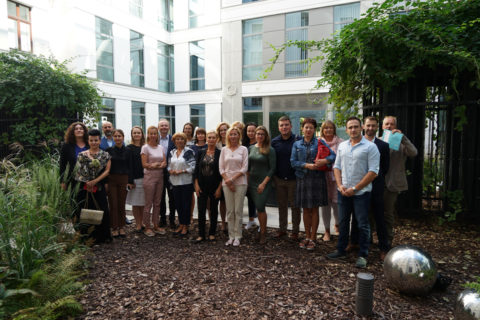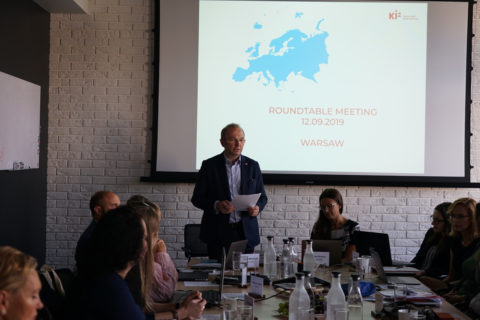Meeting of european representatives of physiotherapeutic communities
On September 12th, 2019, meeting of physiotherapist communities from selected European countries were held at the headquarters of the Polish Chamber of Physiotherapists. The meeting attended members of chambers and associations of physiotherapists from Bosnia and Herzegovina, Croatia, Estonia, France, Georgia, Lithuania, Latvia, Montenegro, Romania, and Slovakia.
The following persons participated on behalf of the Polish Chamber of Physiotherapists: Maciej Krawczyk – President, Ernest Wiśniewski – Vice President, Zbigniew Wroński – Vice President and members of the International Cooperation Committee – Dalia Woźnica, Weronika Krzepkowska, and Joanna Tokarska.
The subjects of the meeting were primarily: currently available procedures for access to physiotherapy, rules governing medical physiotherapy services, migration and mobility of specialists, and the dynamics of changes in physiotherapy services in Europe.
Representants of the Polish Chamber of Physiotherapists presented the way of Polish physiotherapists to the establishment of the self-government body, its goals and assigned tasks as well as reforms to date – especially newly emerging physiotherapeutic practices and including physiotherapeutic functions in the scope of guaranteed services in the field of basic health services. Guests introduced how physiotherapists associate in their countries – through the foundations and associations to the independent chambers and self-regulated bodies. The importance of exchanging experiences between participants was emphasized.
The benefits of direct access for patients to physiotherapy were discussed. Recommendations on training and promotion of professions, as well as the application of WCPT instructions to physiotherapy curricula to make the most of physiotherapy services for the independence of the profession, were highlighted. The French representative presented a new reform of the Ministry of Health and Solidarity in France (September 9th, 2019), which provides the possibility of direct access for patients to physiotherapy services in case of ankle sprain and acute low back pain to the end 2019.
During the meeting, issues related to the migration of physiotherapists were also raised. Participants discussed the known factors and its far-reaching effects. In line with the recognition that migration should be the subject of interest – a high percentage of physiotherapists in our location migrate, which also starts to be an interest of the European Union. A proposal to contact the European Commission has been made.
It was pointed out that current changes in physiotherapy from an international perspective are occurring in two directions – towards the regulation of the profession (establishment of chambers, legal regulation of the profession) and in the scope of performed activities (granting additional rights to physiotherapists). Changes in the scope of competences occur mainly in Western Europe, where physiotherapy becomes more specialized and targeted. Eastern Europe aims to regulate the profession and create structures for its operation; it is growing dynamically. It was proposed that countries introducing new competencies for physiotherapists could share their experiences with countries where specific solutions are still in planning. The knowledge resulting from these experiences can contribute to convincing the authorities and public opinion to introduce new solutions on local soil.






